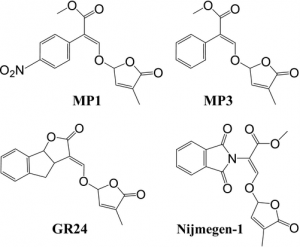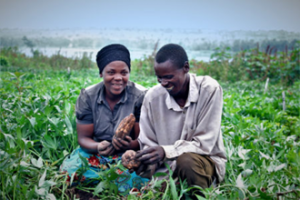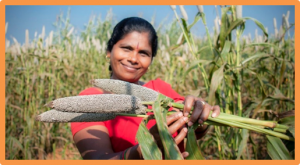Striga hermonthica, also known as purple witchweed, is an invasive parasitic plant threatening sub-Saharan Africa's food production. Striga infects the region's staple crops such as pearl millet, sorghum, and other cereal crops. Striga has an Achilles heel, though. As a parasite that attaches to the roots of other plants, it dies when it cannot find a host plant to attach to. Scientists found a way to exploit Striga's Achilles' heel to eradicate it from farmers' fields.
Collaborating with partners for impact
The Inaugural WHO Partners Forum is the first of a series of conversations with partners to help WHO meet the strategic goals laid out in its Thirteenth General Programme of Work (GPW13) for 2019-2023.
Rising demand for food in low- and middle-income countries is opening up new opportunities for farms and related businesses. This demand is being driven by population growth, higher incomes and urbanization. Rapid change, however, poses a range of environmental, health and equity challenges across the highly heterogeneous farming production systems worldwide.
When a drought-bringing El Niño hits, farmers are the first to take the brunt of the climate stress. Quickly obtaining information on the fallout is essential for development agencies, government and farmers organizations to respond efficiently. But poor connectivity and slow flows of information are an obstacle. An app tested with thousands of farmers in Colombia and Africa showed that farmers can quickly produce and share vital information when climate problems arise.
The people of rural India love their bajra chapatis. These flatbreads made of pearl millet flour are a highly nutritious staple in the diet of millions of Indians. And farmers love pearl millet because it will grow where other crops just do not have a chance. But climate change is throwing all kinds of challenges at this cereal crop, which has been grown in Africa as well as the Indian subcontinent since prehistoric times. Today, heat waves, drought and newly emerging diseases are all contributing to lower yields.
The 3,000 Rice Genomes Project (3K RGP) is a collaborative, international research program that has sequenced 3,024 rice varieties from 89 countries. This massive dataset is a powerful resource for understanding natural genetic variation in rice as well as for large-scale discovery of new genes associated with economically important traits. It will help accelerate the pace of developing improved rice varieties around the globe to feed a growing population, estimated to reach more than 9.6 billion by 2050, with half of humanity relying on rice for sustenance and livelihood.
An international team of researchers from VIB-UGent Center for Plant Systems Biology and University of Basel has found a link between a class of enzymes and immune signals that is rapidly triggered when plants are damaged. In plants, damaged cells send out signals to alert the surrounding tissue of the wound. These signals activate the immune system to prevent infection and promote tissue regeneration. Short protein fragments or peptides are important in the plant's immune system. These peptides are produced from precursor proteins that are ‘cut into shape' by so-called proteolytic enzymes or proteases.
Scientists from the University of Western Australia (UWA) have discovered two enzymes that explain the sensitivity of wheat plants to salty soils. The UWA research describes the two wheat enzymes which are especially sensitive to salt and appear to be the weak link leading to plant death in saline soils. The researchers also discovered wheat has a natural defense system that can bypass one of the sensitive enzymes, partially protecting against salt.
The USDA Foreign Agricultural Service's Global Agricultural Information Network (USDA FAS-GAIN) released their report on Mozambique's agricultural biotechnology sector status for 2018. It highlights the initial results of the Mozambican Agricultural Research Institute's genetically engineered (GE) corn confined field trials. The trials are set to be done in two stages.
The Panel for the Future of Science and Technology of the European Parliament has published a report, Farming without plant protection products. The report presents the current role of plant protection products (PPPs) in securing global food production, preserving biodiversity, and supporting farmer's income in the EU.


 Curently online :
Curently online :
 Total visitors :
Total visitors :









